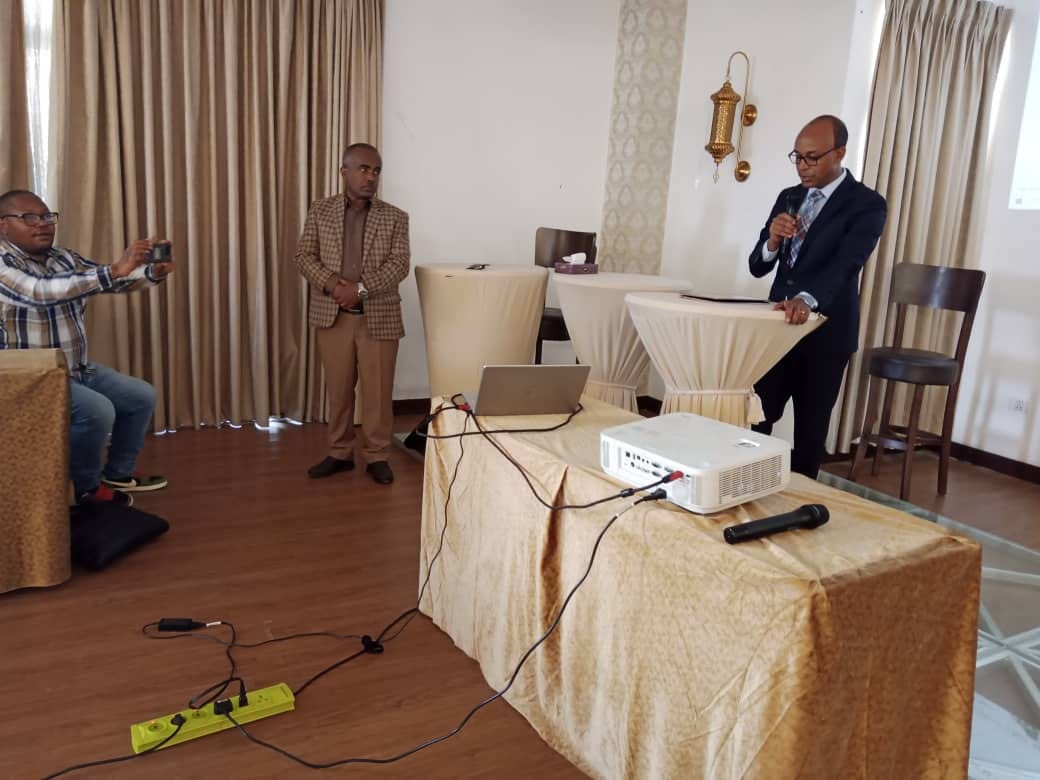Dr. Tesfaye Welcomes Stakeholders to Genome Editing Curriculum Validation in Ethiopia
Stakeholders and participants engaged in productive deliberations, contributing to the continued progress of Genome Editing awareness and application in Africa.
ADDIS ABABA, Ethiopia — Dr. Kassahun Tesfaye, Director General of the Bio and Emerging Technology Institute (BETin), welcomed stakeholders, experts, and guests to the Stakeholder Validation of Genome Editing (GEd) Training Materials and Curriculum, held from November 15th to 17th, 2023, in Addis Ababa, Ethiopia, writes Winston Mwale.
In his opening remarks, Dr. Tesfaye expressed his pleasure and honor in hosting the crucial gathering aimed at validating GEd training materials and curriculum designed for continental use.
The event, attended by Madam Florens Nazar, Head of the Center of Excellence in Science, Technology, and Innovation at AUDA-NEPAD, brought together experts, researchers, and policymakers from across Africa.
"Welcome to Addis, the political capital of Africa. It is your home, so welcome home!" Dr. Tesfaye declared.
He extended a warm welcome to the task force involved in developing GEd training materials and curriculum.
Dr. Tesfaye outlined Ethiopia's historical involvement in biotechnology, beginning in the mid-1980s with a collaborative project between Addis Ababa University and Swedish universities.
Despite initial challenges, Ethiopia has recognized biotechnology as a key sector to address food and nutritional security, health, and environmental challenges.
Dr. Tesfaye highlighted the significant steps taken by the Ethiopian government in the last decade, including the establishment of the Ethiopian Biotechnology Institute in 2016 and the subsequent broadening of its mandate to include emerging sciences such as nanotechnology, AI, and material science.
He emphasized the importance of the biosafety proclamation amendment in 2015, the development of a biotech roadmap and national strategies, and the establishment of the National Biosafety Committee.
Ethiopia's engagement in global biotech initiatives, such as becoming the 66th Member State of the ICGEB in 2019, further showcased its commitment to biotech research and development.
In terms of research and commercialization, Dr. Tesfaye shared achievements such as the deregulation of Bt cotton varieties and TELA Maize, as well as ongoing Genome Editing projects on sorghum, Brassica carinata, and Eragrostis Tef.
Despite these advancements, Dr. Tesfaye stressed the need for collaborative efforts in capacity building, awareness raising, and communication on Genome Editing to benefit Ethiopia and other African countries.
The workshop, organized by AUDA-NEPAD in collaboration with BETin, aimed to validate GEd training materials and curriculum for application at the AU level.
Dr. Tesfaye concluded by thanking AUDA-NEPAD for spearheading the development of harmonized training materials and curriculum, and he declared the validation workshop officially open.
Stakeholders and participants engaged in productive deliberations, contributing to the continued progress of Genome Editing awareness and application in Africa.




